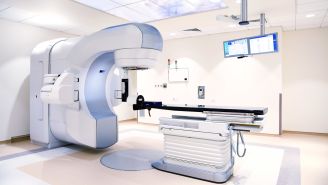Updated on October 31, 2023.
We don’t have the time. We don't think our health insurance covers them. We just don’t know which ones to get. Whatever the reason, many of us put off or skip preventive health screenings that are designed to catch problems before they become more serious.
For example, mammograms and colonoscopies can often detect breast and colon cancer before someone has symptoms, says Eric Goldberg, MD, an internal medicine doctor with NYU Langone Health in New York City. Other screenings, like those done for diabetes or blood pressure, can spot changes in health that are potentially reversible.
“If you’re already having symptoms, then tests are used as a diagnostic tool,” Dr. Goldberg explains says. “Screenings are done when you’re asymptomatic—meaning you don't have symptoms—as a way to find those issues that might be in the very early stages, when they’re much more treatable.”
Why aren’t more people getting screened?
There are a number of reasons why people might push screenings into the “I’ll do it someday” category of their healthcare, Goldberg notes.
Some people are afraid of the tests themselves, he says, since they might be uncomfortable or even painful in some way. Many people dread having to do colonoscopy prep in the days before the test, for example, since it involves cleaning out the bowel with a special solution that induces diarrhea.
Other times, there may be reluctance because of the cost of tests, especially if someone has a high insurance deductible. In that case, Goldberg recommends a call to your healthcare provider (HCP). In many cases, routine preventive screenings are often covered.
Fear of potentially bad results can also drive the decision not to get a health test, Goldberg adds. “People might feel like they don’t want to know,” he says. “They imagine a terrible scenario based on the results, so they just avoid it completely by not getting screened.”
Not being screened—for whatever reason—can create what's known as a "gap in care" for patients. Without that essential component of preventive care—which includes screenings, immunizations, and wellness visits—you could be at a much higher risk for having a disease progress to a more serious stage before it’s caught.
For instance, a colonoscopy can find polyps, little growths that can lead to colon cancer. Or if cancer cells or tumors are already present, a colonoscopy can find them before they spread.
With something like diabetes screening, a test can determine whether you have prediabetes. This means your blood sugar level is abnormally high, but not quite high enough to be considered diabetes. If a screening indicates you have prediabetes, you can reap considerable benefits from starting to make lifestyle changes that may prevent the progression to type 2 diabetes.
What screenings should you get?
There are some general screening recommendations for everyone. For example, people with no risk factors are advised to begin cholesterol screenings at age 20 and have dental exams once or twice a year. There are also tests specific to people assigned female and male at birth.
But screenings should be personalized based on your family health history, age, personal health experience, and additional risk factors, Goldberg says. For instance, since colon cancer has a genetic link, if several members of your immediate family have had that cancer, your HCP will likely recommend screenings at an earlier age.
Lifestyle choices also play a part, notes Goldberg. Some cancers and other health issues are associated with smoking, exposure to environmental toxins at a job site, and even obesity. “If you’re a construction worker who deals with asbestos and you’re a smoker, for example, it’s a good idea to have a regular lung cancer screening,” he says.
Beyond cancer and diabetes, other potential screenings include those for high blood pressure, high cholesterol, osteoporosis, sexually transmitted diseases, hepatitis C, hearing loss, vision loss, and mental health conditions.
The best strategy for determining which tests are right for you is to consult with your HCP. Goldberg says you should bring a full family history of diseases and talk honestly about your lifestyle habits like smoking and alcohol use. Together, you and your provider can get a better idea of where your risks might be, and schedule regular screenings based on your situation.






